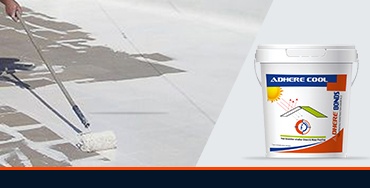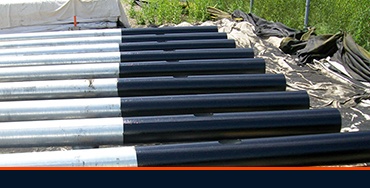
Summer Cool Coating
Heat Shield is an energy-saving, heat-reducing elastomeric coating formulated with high-quality acrylic emulsion polymers, carefully selected and graded fillers, durable white pigments, weather-resistant additives, and water as the base medium. It reflects sunlight, reduces surface temperature, and helps maintain cooler interiors, making it ideal for roofs and exterior surfaces exposed to direct sunlight.

Coal-Tar-Epoxy-Protective-Coating
This is a high-performance, two-component coal tar epoxy-based coating designed to protect concrete and metal surfaces from chemical penetration, effectively preventing corrosion. It forms a tough, durable barrier that offers excellent resistance to harsh environments, making it ideal for use in foundations, pipelines, water treatment plants, and marine structures.
